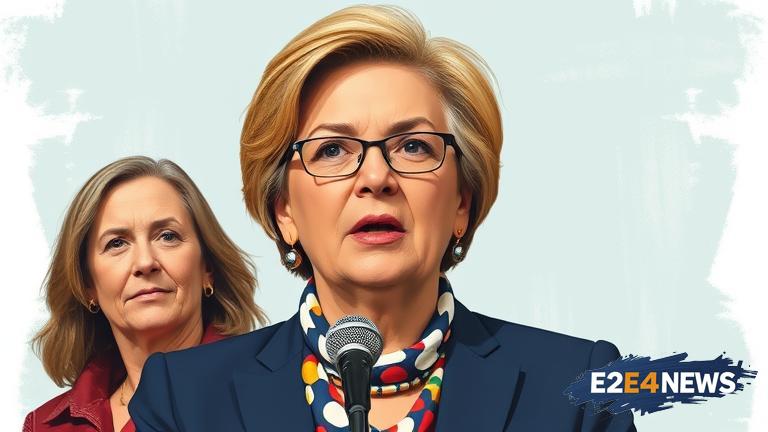The Democratic primary in Maine has taken an interesting turn as candidates challenging incumbent Governor Janet Mills have expressed differing views on tribal rights. This issue has become a contentious point in the state, with some candidates advocating for greater autonomy for Native American tribes and others taking a more cautious approach. The debate centers around the rights of the Passamaquoddy and Penobscot tribes, which have long sought greater control over their lands and affairs. One of the challengers, a former state legislator, has come out strongly in support of tribal sovereignty, arguing that it is essential for the well-being and self-determination of Native American communities. In contrast, another candidate has taken a more measured stance, emphasizing the need for cooperation between the state and tribal governments. Governor Mills, who has faced criticism from tribal leaders for her handling of their concerns, has sought to balance the competing interests of various stakeholders. The divide on tribal rights reflects broader tensions within the Democratic Party, where progressive and moderate factions often have differing priorities. As the primary season heats up, the issue is likely to remain a major point of contention. The Passamaquoddy and Penobscot tribes have historically faced significant challenges, including poverty, poor living conditions, and limited access to healthcare and education. Tribal leaders argue that greater autonomy would enable them to address these issues more effectively, but some state officials have expressed concerns about the potential implications for non-tribal residents. The debate has also drawn in national figures, with some prominent Democrats weighing in on the importance of tribal sovereignty. Despite these challenges, there are also opportunities for cooperation and progress, as evidenced by recent initiatives to promote economic development and cultural exchange between the state and tribal communities. However, the road ahead will likely be fraught with difficulty, as the various stakeholders navigate complex legal, political, and social issues. The outcome of the primary will be closely watched, both within Maine and nationally, as it may have significant implications for the future of tribal rights and the Democratic Party’s stance on this critical issue. As the campaign season progresses, voters will be looking for clear and compelling visions from the candidates on how to address the pressing concerns of Native American communities. The candidates’ positions on tribal rights will be subject to intense scrutiny, and their ability to build bridges between different constituencies will be essential in winning over voters. Ultimately, the decision will depend on a variety of factors, including the candidates’ track records, their policy proposals, and their capacity to inspire and mobilize supporters. The Maine Democratic primary has the potential to be a watershed moment in the debate over tribal rights, and its outcome may have far-reaching consequences for the state and the nation. The candidates must navigate this complex and sensitive issue with care and nuance, recognizing the historical injustices faced by Native American communities and the need for meaningful reform. By engaging in a respectful and inclusive dialogue, the candidates can help to build trust and foster a more equitable relationship between the state and tribal governments. As the primary approaches, the focus will shift from rhetoric to action, and voters will be looking for tangible commitments from the candidates to address the pressing concerns of Native American communities. The future of tribal rights in Maine hangs in the balance, and the outcome of the primary will have a lasting impact on the state’s trajectory. The debate over tribal rights is a microcosm of the broader challenges facing the Democratic Party, as it seeks to balance competing interests and priorities. The party’s ability to navigate these complexities and emerge with a clear and compelling vision will be essential in winning over voters and advancing the cause of social justice. As the campaign unfolds, the candidates must be willing to listen, learn, and adapt, recognizing that the issue of tribal rights is complex and multifaceted. By doing so, they can help to build a more just and equitable society, where the rights and dignity of all individuals are respected and protected.
